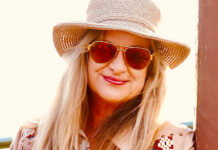February is the month of love, and certainly not the time to talk about breakups. But when it comes to separating from all the “stuff” in your life, the familiar refrain, “It’s not you, it’s me,” rings true.
Editing might be a little painful, but that’s OK. Comfort is not needed. Graham Hill, the founder of LifeEdited, dedicated to helping people design their lives for more happiness with less stuff, advises to “edit ruthlessly.”
In many ways, getting rid of stuff is like breaking off a relationship, he says. If it’s a horrible relationship, ending it can be easy. But most relationships, like most stuff, have some elements that work and others that don’t, and the prospect of letting go of the things that do work can overshadow the preponderance of things that don’t.
What makes the decision to let go of things easier is the idea of where they end up. At Goodwill Central Coast, we love our donors because our mission begins the moment these treasures arrive. Every single donation (and subsequent) sale fuels our quest to remove obstacles to employment. An added bonus? We help protect the pristine Central Coast landscape by keeping items out of our landfills, and reducing the need for environmentally damaging “fast fashion.”
Focus on the other side
Many of the arguments for editing your life — less to deal with, store, clean, etc. — become muddle when presented with the idea of an emotional loss. Hill suggests trying to create a stronger emotional connection to the other side, meaning what might your life look like after you edit.
Benefits of decluttering include:
- Better focus. Clutter makes it difficult to find what you need. It may also distract you. Getting rid of visual clutter can help you focus better on any task at hand.
- Higher self-esteem. When you have trouble staying organized, you may feel out of control. Improving your living space can restore feelings of competency and pride.
- Better relationships. Conflict with family or roommates often occurs when one person can’t control clutter. Also, you may be more comfortable inviting friends into your home when it’s tidy.
Connecting emotionally to these outcomes proves far more powerful than a pro/con balance sheet of why we should hold onto our cheese knives.
Don’t fill up your space
Did you know that Americans have about three times the amount of space they had 50 years ago? One would think that with all this extra space we’d have plenty of room for all our stuff. Nope. We either let it clutter our lives or we pay to have it stored.
Hill suggests that there’s a better way, a life where less might actually equal more. Many of us have experienced at some point the joys of less: spending college in a dorm room, traveling light, living on a boat. Those moments gave us a little more freedom and a little more time.
Marie Kondo, the best selling author and queen of decluttering, says it best when it comes to letting go of the past.
“To throw away what you no longer need is neither wasteful nor shameful,” Kondo writes in “The Life-Changing Magic of Tidying Up.” “Let them go, with gratitude. Not only you, but your things as well, will feel clear and refreshed when you are done tidying.”
Try not to feel bad about tidying up your space and moving on from belongings. After all, “to truly cherish the things that are important to you, you must first discard those that have outlived their purpose,” she says.
Finally, if you’ve made a decision to “break up” something, stay firm in your decision, despite discomfort, and edit away. Boxing things up and dropping them off at Goodwill can help with any feelings of regret. That box has a great chance of turning someone else’s life around.












